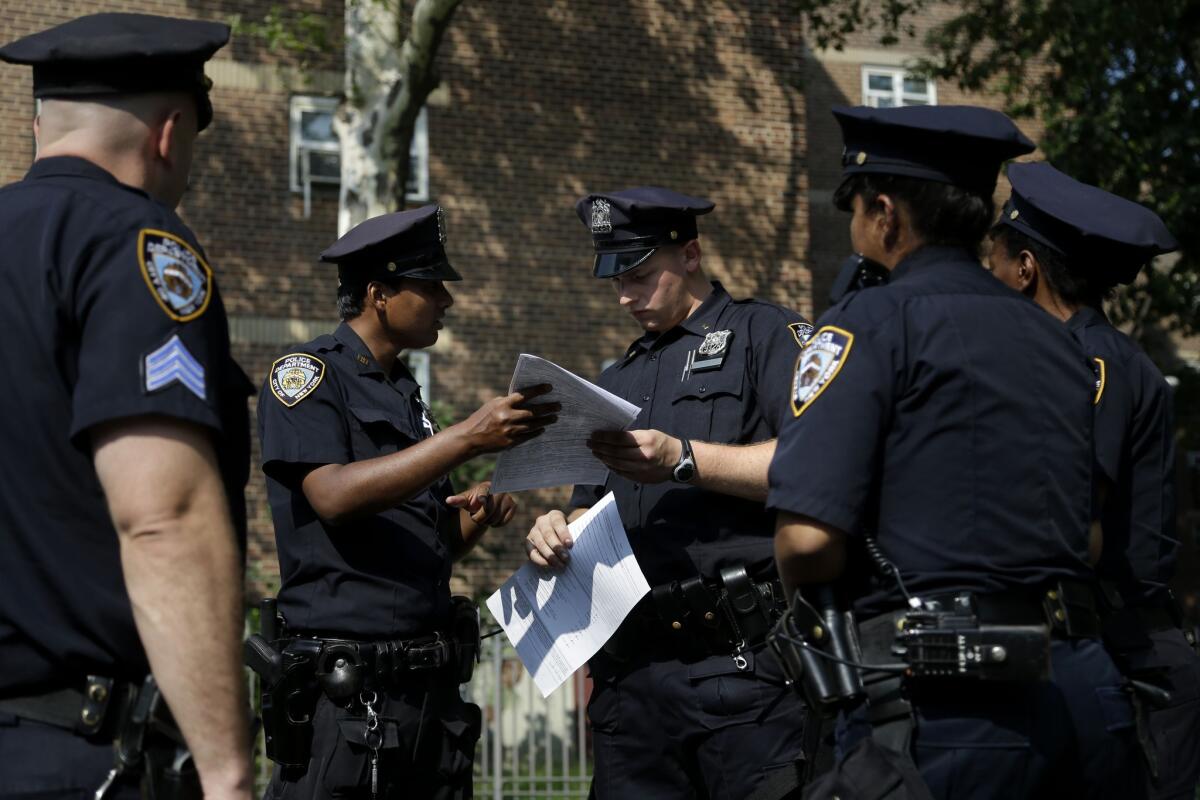Appeals court halts New York stop-and-frisk ruling, removes judge

- Share via
A federal appeals court handed New York Mayor Michael R. Bloomberg at least a temporary victory in the stop-and-frisk case by blocking a lower court order requiring changes to police policy.
The U.S. 2nd Circuit Court of Appeals also removed District Judge Shira Scheindlin from the case, saying she appeared to violate rules requiring judges to avoid the appearance of partiality.
Under the policy, police can aggressively stop and question people suspected of crimes. It was praised by those who wanted to allow police to question suspects and by city officials for the drop in crime during the Bloomberg years.
Civil rights groups, and some Democrats including Bill de Blasio, the prohibitive favorite to be elected the city’s next mayor, have questioned the policy, which they contend is a form of racial profiling.
The ruling stems from a class-action case, first filed in 2004 by four men who contended that their civil rights had been violated. The appeals court stayed the lower court ruling.
The theory behind stop and frisk is that forceful law enforcement can lead to better crime prevention. City and police officials in New York credit such stops, also known as field interviews or field interrogations, with removing thousands of illegal weapons from the streets and for contributing to a decades-long drop in crime, much of it benefiting minority neighborhoods. Critics say the stops overwhelmingly target African Americans and Latinos.
Scheindlin had ruled in August that the way the city was carrying out the policy of stopping and questioning people violated the Constitution.
She also appointed an outside monitor to oversee major changes, including in policies, training and supervision, and she ordered a pilot program to test body-worn cameras in some precincts.
Officials appealed her ruling and the orders.
In removing the judge from the case, the appeals court decided that Scheindlin had violated rules of conduct that call for a judge to avoid even the appearance of partiality, in part because she had given interviews and responded to public criticism of her ruling.
ALSO:
Red Sox nation honors Boston Marathon bombing site
Some Americans say they have had ghostly encounters
NSA reportedly collecting data secretly from Google, Yahoo
More to Read
Sign up for Essential California
The most important California stories and recommendations in your inbox every morning.
You may occasionally receive promotional content from the Los Angeles Times.














